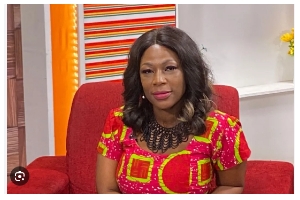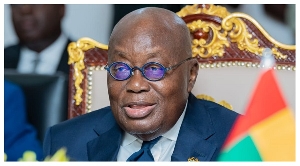Opinions of Tuesday, 12 June 2007
Columnist: Okoampa-Ahoofe, Kwame
Of Zoos, Physicians and Politics - Part 1
Not since Dr. Kamuzu Banda turned Malawi into hostile, pseudo-European territory have so many Ghanaian physicians attempted to run for president of their country. And the several logical bases for their decision to run for the highest office of the land appears to be that they have successfully managed hospitals and health centers and programs entrusted into their care. And when the crucial question of political experience has been raised, the tendency has been for some of the sympathizers of these physicians to brusquely brush this question aside and, instead, run a seemingly impressive but contextually baseless catalogue of the purported achievements of these physicians, almost as if to say that the serious business of presidential politics were a practical non-issue; almost as if to rather cynically imply that any professionally successful physician could also automatically become not only a successful politician but, quite curiously, a successful president of Ghana.
But then, the reader may be aptly prompted to ask: What have zoos to do with physicians? And the quite simple answer revolves around an article that was posted to the Ghanaweb.com edition of June 4, 2007, by my dear brother Okyere Bonna, purporting to impugn the sense of priority of the Kufuor Administration of the ruling New Patriotic Party (NPP) but which, in essence, culminates as a shameless shill for the presidential candidacy of Dr. Arthur Kennedy, of Orangeburg, South Carolina, U. S. A.Needless to say, those of us who have lived here in the United States know perfectly well that while it has a history painfully steeped in the massive enslavement of continental Africans, South Carolina is not recognized as a major state of the Union, that is the United States of America. And with a human population of a mere 4.3 million, or one that is barely larger than our own Greater-Accra Region, South Carolina ranks with such economically minor states as Maine, New Hampshire and Rhode Island, even as it also ranks quite high on the list of the most anti-African-American, or racist, geopolitical enclaves of the United States. Which, in effect, makes Dr. Arthur Kennedy’s purported achievements in running a county- or district-level health center all the more impressive.
Still, as we noted above, merely running a health center, or even a group of health centers, in a small community in South Carolina is hardly the same as running a major health center, or network, in New York City, for instance, where the population is nearly three times the size of South Carolina’s, and the cosmopolitanity or diversity of the culture is such as to make Orangeburg, South Carolina, seem more like a one-room apartment. Besides, the fact that Dr. Kennedy did not manage the entire healthcare system of the State of South Carolina, does not give the candidate adequate experience, or the requisite preparation, to even fathom the level of managerial skill, and expertise, that it would take to run a direly cash-strapped Ghanaian national healthcare system, let alone the multi-professional and departmental portfolio of the job of President of Ghana.
Needless to say, it is all well and good for Candidate Kennedy to pram around touting such campaign platitudes as: “Making Government Work for the People; Putting People to Work; Making[sic] a Place at the National Table for Diasporans; Revamping Our Healthcare [System?]; and Integrating Technology into Education and Business.”
The catch here, however, is that the presidency is not about on-the-job training, particularly the presidency of a country like Ghana which requires people not only with remarkable and extensive professional experience on the ground, as it were, but also the type of political experience that makes decision-making and consensus-building as meaningful as the trend that has so far been remarkably pursued by incumbent President J. A. Kufuor for nearly seven years now.
But, perhaps, even more significantly, Candidate Kennedy ought to ask himself, since he appears to be fairly conversant with American presidential history, how many Americans who were ever elected President came to their job with virtually no political experience, whatsoever and, believe me, the unmistakable answer would inevitably be either “NIL” or “ZIP.” Needless to say, for most of its existence as a “model,” two-party democracy, almost every elected American president came to the job as Vice-President, State Governor, United States Senator (as distinguished from a State Senator), Congressional Representative, or some such mainstream political operative. Turn your studied attention to Britain’s Number Ten Downing Street, and the résumés of nearly all the Prime Ministers ever elected would roughly read as almost the same as those of Presidents of the United States. Go further east to France, Germany and the Netherlands, for further examples, and your findings would be much the same. And so why must Ghana be any different? Or is it just that being so intimately familiar with the affairs of our dear country, we have also, curiously, become so cavalier as to expect the least, in terms of leadership experience and skills, of her?
Indeed, not quite long ago (I believe in the heat of the raucous ROPAB debate), my uncle Cameron Duodu poignantly lamented the fact that the abject lack of remarkable political experience, on the part of those who would be president, or modern-day kings, of Ghana was squarely to blame for the Stygian mess in which the country found itself. Needless to say, one only needs to recall the drawn-out tenure of the so-called Provisional National Democratic Congress (P/NDC) to arrive at the same conclusion.

Views expressed by the author(s) do not necessarily reflect those of GhanaHomePage.












